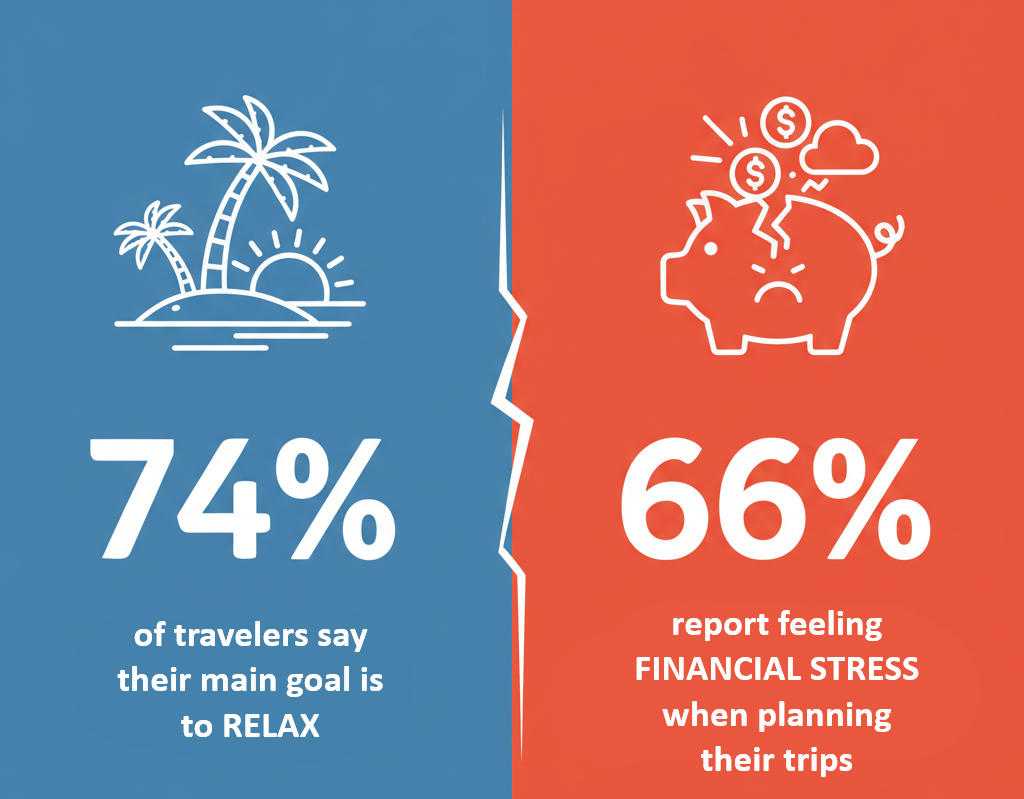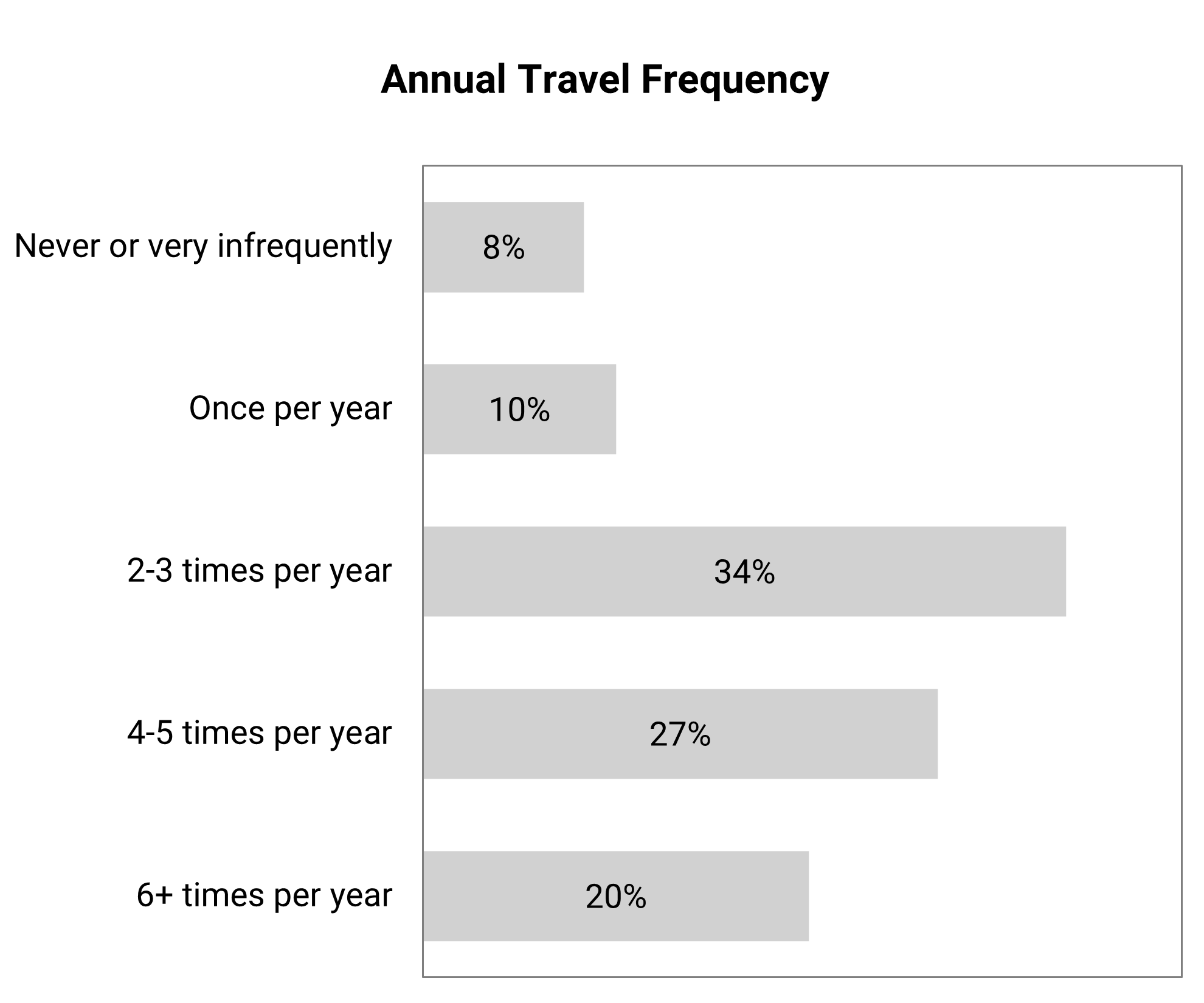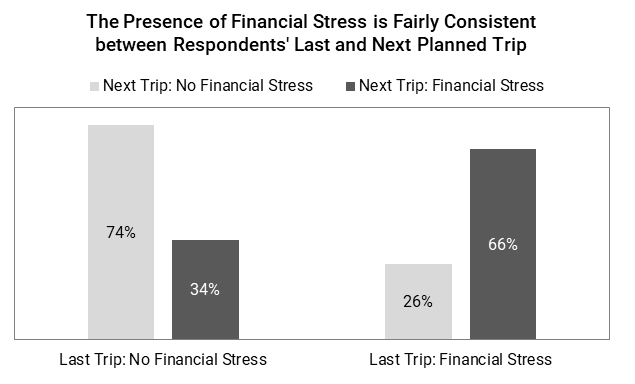The Relaxation Paradox: Why is a 'Relaxing' Vacation Often So Stressful?
For most people, the purpose of leisure travel is straightforward: they want to relax. Yet, as my research shows, the actual experience is often undermined by significant stressors, particularly around finances and planning. This gap between the goal of travel and the process of travel is a critical area for any business aiming to serve the modern traveler. This study was designed to explore that gap by asking two fundamental questions: Why do people travel for leisure, and what are the biggest stressors that get in their way?
About the Study
To explore the motivations and stressors of modern travelers, I designed and distributed a 15-minute survey (which you can see here) to a diverse group of 59 adults. The sample consisted primarily of frequent travelers (81% travel 2-3 times per year or more) who are young adults (78% are ages 18-34) with moderate incomes (54% earn less than $50,000 annually). This focus allowed for an in-depth look at the specific challenges faced by an active and budget-conscious travel demographic.
Travel Practices and Behaviors
92% of the sample travels at least once per year on a regular basis, with 81% traveling 2-3 times per year or more. One-fifth (20%) of the sample travels for leisure 6+ times per year.
The most common reason for traveling for leisure was “Relaxation” at 74% of the sample, followed by “Nature” at 40%, “Family” at 36%, and “Friends” at 34%.
Stressors and Solutions
The stressor most often ranked as the top stressor for respondents’ next trip was finances (29%).
Most respondents feel strained by finances, even if it wasn't their top stressor. In total, 39 respondents (66% of the sample) said finances contributed to their travel planning stress. Those who reported financial stress on their last trip were more likely to report it again on their next trip—66% of them did so.
How do Travelers Reduce their Stress?
More than half of respondents (33) answered “Not applicable” or “Not sure” to this question. The rest revealed themes—few of which addressed the main stressor of cost:
Preparation and Planning (11)
“Kept an ongoing list of things to pack and kept adding things as they came to mind.”
“Creating back up itineraries if my main plans fell through; planning a bit of flexibility into my schedule.”
“Researched the area online first and stayed in connection with friends and significant other.”
Self-Care and Relaxation (6)
“Listening to music and taking the time as it comes.”
“Try to relax.”
Adapting to Circumstances (4)
“Going with the flow helped.”
“Tried to focus on having fun.”
Seeking Support (3)
“Talk to my family.”
“Talked it through and/or prayed.”
Financial Management (3)
“Saving up money and spending less money the next few months.”
“Use credit card rewards.”
Key Insights on the Modern Traveler
The Goal Isn't Always the Reality.
The primary motivation for leisure travel is relaxation (74% of respondents). However, the majority of travelers face significant stress, with finances being the top concern for nearly a third of them. This suggests that products or services shouldn't just focus on the destination, but on reducing the friction of the journey itself.
Travelers Are Looking for Better Coping Tools.
When faced with stress, a majority of travelers (over 50%) had no clear strategy for managing it, answering "Not sure" or "Not applicable". They simply endure it as a necessary part of the experience. This reveals an unmet need for tools that help people plan, budget, and manage the emotional aspects of travel more effectively.
Financial Stress is a Persistent Pain Point.
For many, financial anxiety isn't a one-time issue. My findings show that travelers who felt financial stress on their last trip were highly likely to report it again for their next trip (66% of them did so). This presents a clear opportunity for solutions that offer long-term value, such as loyalty programs, savings tools, or transparent 'buy now, pay later' options.
Further Questions for a Deeper Understanding
This study provides a foundational look at the landscape of travel stress. For any organization in this space, it naturally leads to more specific, high-value questions that can inform product development and marketing strategy:
Demographics & Unique Needs: How do stressors differ for specific groups, like solo female travelers or lower-income families? A deeper dive could uncover the unique needs of your target audience.
Spending & Decision-Making: How exactly does financial strain affect travelers' decisions? Understanding their upper spending limits and what they're willing to pay for could reveal new pricing or service opportunities.
The Value of Experience: Do travelers ultimately feel the financial strain is "worth it"? Answering this gets to the heart of the value proposition for any premium travel service.
Answering these questions is the next step to building a truly user-centric product. If you're interested in exploring them for your business, I can help. Book a free consultation here.






